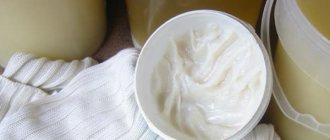You need graphite. Let the binder oil in it burn out later - the graphite will remain and will “smear” for a long time. And the factory one could be lighter than good graphite due to savings, they could be “diluted” with solid oil. (or even just smeared it with grease).
But this is not good - divulging secrets ;)) Sincerely, Andrey
Gas equipment requires special attention and accuracy in operation: we should not forget about the many examples of household gas explosions. In 2018, on December 31, a similar disaster destroyed 40 apartments, people found themselves under the rubble when the frost outside was below 20 degrees. Therefore, if any problems arise with gas equipment, the best solution is to call a specialist.
Quite often, the breakdown turns out to be minor - the tap on the stove, riser or column turns tightly. Often repairs come down to replacing the lubricant. The craftsmen prudently do not disclose the brand, but from GOST standards the Miss Clean resource found out how to lubricate a gas tap without compromising safety.
How to lubricate a gas tap on a stove
If it’s quick and homely, then you can use a CV joint or lithol, but if you want something good, then...
Lubricant LZ-GAZ-41 (TU 0254-322-00148820-98) is intended for lubrication of plug valves of household gas equipment. Has the ability to rub in rubbing surfaces, improving the tightness of faucets as they operate
. LZ-GAZ-41 lubricant has high temperature and chemical resistance, is insoluble in water, and non-aggressive towards valve materials
household gas stoves.
LZ-GAZ-41 lubricant is made on the basis of mineral oil thickened with lithium-calcium soap with the addition of anti-corrosion and antioxidant additives and solid fillers - molybdenum disulfide and acetylene black
.
When I needed such a thing, I went to Gorgaz (on Krasnoznamenaya Street) thinking to catch some repairman there and ask him for a little bit of this stuff... After walking a little along the fence (they were having lunch or something), I suddenly discovered as such an uncle to his brother (IMG:style_emoticons/default/blink.gif) (I didn’t even know that he was already working there)… but another one might turn up. (IMG:style_emoticons/default/smile.gif) Now there seems to be a shop there, in the same building, but is there any lubricants there...?
By the way, there is no need for special heat resistance, the main thing is good sealing and long-term reliability.
In principle, you can take a small file and plan a soft lead from a simple pencil. Mix it with the same lithol or cyatim and it will be like a heat-resistant lubricant.
Graphite will not add any heat resistance. The taps are lubricated with a lubricant with an operating temperature of up to 150 degrees; this is not a heat-resistant lubricant at all. The durability of the lubricant is determined by the lather, not the graphite.
Theorists? Graphite grease is better. Even after many years of use, if it dries out, it can be removed more easily than a stuck-on regular one. When operating with the oven door slightly open (when drying mushrooms, for example), more heat is supplied to the taps than usual. So it’s better not to engage in perversion, but to buy normal lubricant, since it’s quite inexpensive.
Even after many years of use, if it dries out, it can be removed more easily than a stuck-on regular one.
When operating with the oven door slightly open (when drying mushrooms, for example), more heat is supplied to the taps than usual. So it’s better not to engage in perversion, but to buy normal lubricant, since it’s quite inexpensive.
More, how much is it?
Mobilegriz is much better than the one from the gas workers.
What does graphite have to do with it? Drying depends on the base and soap.
More, how much is it? No higher than 150 degrees in any case, otherwise the handles will burn and melt. Mobilegriz is much better than the one from the gas workers.
I don’t understand, are you a gas fitter or an air conditioner? Can you help me install a simple split system if I buy it? How much do your services cost? Look, I’ll install the outdoor and indoor units myself, where it’s convenient for me. I did all the electrical work myself. There are either four or five wires. I just need to connect the tubes, pump out the air, and make sure everything floats properly. I don't have such a tool.
A positive feature of Soviet gas taps is their long service life and maintainability. However, such a faucet requires regular maintenance, since the tightness of such a device is ensured by grinding the faucet plug to the body; read more about this in our article.
The appearance of a gas smell in the area of the plug valve is not a reason to replace it, but you will still have to call a gas service representative to eliminate the cause of the leak.
This article describes step by step the process of revising the two most popular gas plug valves: coupling and tension. Please note that this article is not a call to action, but is offered solely for informational purposes, since gas-hazardous work must be carried out by specialized organizations that have the necessary permits. It will be useful to those who want to personally verify the quality of the tap inspection performed by the gas service.
Which lubricant for the mixer to choose yourself
We have all been using a single-lever mixer for a long time and we find it convenient in all respects. Compared to the former “two handles,” it looks organic in the bathroom and helps you turn on cold or hot water without any problems. Such a “lever” appeared back in the 50s of the last century. But what to do when such a mixer breaks? How to fix it? Plumbing grease for the faucet will help us in this matter. What they are, what they are, and so on – we’ll talk below.
Preparatory work
Before you begin inspecting the gas tap, you need to find out whether the tap is actually the source of the leak. To do this, you need to wash the tap by applying foam to the connections. We find places where gas is leaking to make sure that the valve is indeed the cause of the leak.
To carry out an inspection, there is no need to remove the gas valve from the gas pipeline. In this article, this is done solely for clarity of the process. However, it is necessary to shut off the gas supply to the gas pipeline and relieve the pressure, and also warn your neighbors to turn off all gas-consuming appliances!
Silicone Grease
This type of consumable for the mixer is necessary for the cartridge to fill the space between its plates - the distance in between is too small, and without it you would not be able to even move the handle from its place, the force of intermolecular interaction is evident.
Simply put, it softens the turn of the handle and allows you to turn it freely. As soon as you feel that it seems to stick when turning, it is a sign that it is time to change it, since it has been washed with water.
For a good cartridge, this will happen after 50 thousand times of turning the water on and off, but you can lubricate it. You need to fertilize with a silicone lubricant - it looks like a paste with a white tint, only half transparent.
Do not under any circumstances confuse it with a tube called “silicone sealant”.
But not everything is as good as we would like. Its price ranges from $8, and it is difficult to find. In search of it, visit stores that avid motorists will recommend to you and visit the car market - it is more often found there as a spray.
When applying material to the top plate, hold the cartridge upside down for convenience, but note that you do not need to pour it into the holes in this position. Do not leave the job unfinished - the consistency has been applied, but now it needs to be evenly distributed, to do this, rotate the rod in the cartridge.
If necessary, you can apply a little more. If you were previously tormented by the following question - “Maybe I should buy a new cartridge after all,” then here is the answer: if, after applying the consistency, sand or rust gets between the plates, then go to the store to buy it.
Solving the problems of plug valves in modern versions
got rid of my plug taps
from these disadvantages, thanks to the use of
a special
seal that
prevents
the plug from sticking, therefore they are very
easy
to operate and very popular when used with aggressive and abrasive media, for example for installation on pipelines with brine.
FluoroSeal to solve your seal
, uses specially patented adjustment
tight fit of the plug to the seat.
The process is very simple
, there is a small bolt on the outside of the case that can be tightened with a regular hex key; when it is tightened, the plug moves and increases the tightness of the fit. The same mechanism decides
the problem
of repair
when the seal wears out, in such cases the seal density simply
increases
and thereby
restores
the previous performance
without stopping
the technological process for repairs and maintenance.
Ensuring the tightness of plug valves
To ensure tightness
tap and ease of turning the shutter, various manufacturers use several
options, including
lubrication system is also used
in the valve body, and for valves used for pumping
oil with a high level
of paraffin
, a
heating
.
Application areas for plug valves
Plug valves are used on many pipelines in the following areas:
Plug valve for petroleum products
Plug valves for alkylation processes
Plug valves for aggressive media
Friction conditions
The friction coefficient is generally determined by two components - mechanical and molecular. The first is caused by surface microroughness and their deformation, and the second by the forces of molecular attraction.
In the “metal ball – polymer seat” system, the mechanical component predominates. For this reason, to reduce friction, the surface of the ball is carefully polished, and this causes an increase in the actual contact area and increases the molecular component. Thus, for ball valves, an extremely important condition is the choice of structural materials of the ball, seat, methods of machining them and the choice of lubricant.
Multi-purpose greases do not provide effective operation at the low sliding speeds characteristic of pipeline fittings and at relatively short and rare periods of movement. For such operating conditions, it is advisable to use special sealing lubricants.
Inspection process of a plug cone coupling valve
Use a flat-head screwdriver to unscrew the screw plug.
Use a flat-head screwdriver to slightly turn the tap plug, pressing on it. Use the finger of your other hand to hold the plug. When it jams, you can tap the screwdriver a little with a hammer.
Do not damage the inner surface of the faucet with a screwdriver and do not drop the plug to avoid scratches and nicks!
We wipe the faucet body and plug with a rag. Dried grease can be removed with gasoline or alcohol.
Using a screwdriver, remove the remaining old grease from the plug.
Apply a thin layer of lubricant to the plug.
Place the lubricated plug into the housing.
We fill the grease into the cavity where the spring is located.
Place the spring in the groove of the plug.
Lubricate the threaded plug and screw it into the housing several turns with a screwdriver. The spring should fit into the groove on the plug.
By tightening the screw plug with a screwdriver, we adjust the smoothness of the tap. We check by turning the plug with a screwdriver. The tap should not turn with force, but it should not move too easily.
Teflon grease
Recently, RAVAK Teflon paste has been used to lubricate plates - it cannot dissolve in water, but sooner or later it is washed out, which necessitates frequent use.
The above information should help you when choosing and using paste. The purpose is not important - the main thing is its quality and longevity. Now you are more aware of the functions and overall appearance, and this knowledge will come in handy when choosing a particular toothpaste. Good luck to you in this matter and may everything go smoothly and without problems.
Source
The inspection process of a plug cone tap through tension
Holding the tap plug with a handle, use the 17th key to unscrew the locknut and the nut in turn.
Remove the limit washer.
We press our finger on the pin of the cork, turning the cork with a handle. When the plug jams, you can lightly tap the stud with a hammer, after screwing the nut onto it first, so as not to damage the thread. You need to hit the nut!
Cleaning the plug and body, followed by lubrication and assembly, is carried out in the same way as a coupling valve. We clean the restrictor washer from old grease.
Apply lubricant to the valve body where the limiting washer meets.
We put the limiting washer on the groove of the stud. To do this, place the tap plug in the half-open position.
Screw the nut through the slot onto the faucet plug.
By tightening the nut, we adjust the degree of tension of the tap. We check by turning the tap handle. The tap should not turn with force, but it should not move too easily. We tighten the locknut.
Once again we check the smoothness of the ride.
Grease Tsiatim-221
You can start with Ciatim-221. Behind this name lies a plastic composition approved by GOST standards and which can lubricate both metal and rubber, not to mention their combinations; It also fits perfectly into friction units.
Cyatim-221 has a widespread application; it can be not only a choice for a faucet in the bathroom or kitchen, but also:
The only problem is demand. Ciatim-221 is very difficult to find on the market, unlike its “brother” – Ciatim-201. This is such an unpleasant minus.
Gas valve malfunctions and their elimination
Before removing the tap, make sure that there is no gas in the system by opening the stove burner.
To dismantle the gas stove tap, you need to remove all the plastic handles and the decorative panel behind them. Once we have removed the outer panel, we have full access to the gas valve studs that hold the valve to the pipeline. The pin must be unscrewed and carefully removed. Unscrew the valve body in your hands, remove the bronze plug and the spring itself. It happens that the cork sticks to the body, then you need to use improvised objects and try to pull it out. We insert the tool into the gap between the plug and the body, carefully turn the plug in a circle and pull it towards you. It is advisable to wash all faucet parts that are in your hands in a solvent and wipe dry.
Silicone Grease
This type of consumable for the mixer is necessary for the cartridge to fill the space between its plates - the distance in between is too small, and without it you would not be able to even move the handle from its place, the force of intermolecular interaction is evident.
Simply put, it softens the turn of the handle and allows you to turn it freely. As soon as you feel that it seems to stick when turning, it is a sign that it is time to change it, since it has been washed with water.
For a good cartridge, this will happen after 50 thousand times of turning the water on and off, but you can lubricate it. You need to fertilize with a silicone lubricant - it looks like a paste with a white tint, only half transparent.
Do not under any circumstances confuse it with a tube called “silicone sealant”.
But not everything is as good as we would like. Its price ranges from $8, and it is difficult to find. In search of it, visit stores that avid motorists will recommend to you and visit the car market - it is more often found there as a spray.
When applying material to the top plate, hold the cartridge upside down for convenience, but note that you do not need to pour it into the holes in this position. Do not leave the job unfinished - the consistency has been applied, but now it needs to be evenly distributed, to do this, rotate the rod in the cartridge.
Teflon grease
Recently, RAVAK Teflon paste has been used to lubricate plates - it cannot dissolve in water, but sooner or later it is washed out, which necessitates frequent use.
This “filling” is wildly popular. It has a number of advantages:
The above information should help you when choosing and using paste. The purpose is not important - the main thing is its quality and longevity. Now you are more aware of the functions and overall appearance, and this knowledge will come in handy when choosing a particular toothpaste. Good luck to you in this matter and may everything go smoothly and without problems.
A Grohe one-arm faucet installed in the bathroom began to work poorly. They write on the Internet that in most cases the problem is a small amount of lubricant in the ceramic cartridge (or no lubricant at all). The problem is solved by removing the ceramic cartridge and, logically, applying lubricant to the discs inside. There was no lubricant, so after disassembling the cartridge, I collected the pieces there with a stationery knife and evenly applied them to the discs. The problem has been resolved, but most likely not for long. In addition, the kitchen also has a faucet with ceramic discs.
I decided to look for a suitable lubricant in advance. Here is the original one from Grohe (aka Syntheso LM 220):
Currently it costs 1190 rubles for 29 grams. Despite the presence of a nearby pickup point, my feelings are well described by the following picture:
An analogue is any other silicone grease with food grade approval and a wide temperature range. For example, Huskey LVI-50. The packaging with new mixers contains 3 gram bags. An excellent option for 1 time, but I couldn’t find it on sale.
In online stores there is a larger volume - 397 grams.
There is an article that describes various types of lubricants for faucets, among which Teflon lubricants are mentioned (prosmesiteli.ru/smazka-dlya-smesitelya/). For these purposes, it offers Ravak Teflon lubricant. Description on the site
(www.ravak.ru/ru/teflonovaya-smazka). Nothing is written anywhere about food approval, but the epithet “sanitary” adds optimism.
On the Huskey forum, someone named Konstantine writes that he lubes the faucet with Slipkote 220-R DBC lubricant:
I decided to see what was in the existential store - there was no slipcoat there (by the way, this is a trademark of the same Huskies). Limon4e on Drive has already written about the problems of purchasing Slipkote for preventing brakes (www.drive2.ru/b/2830456/). But there are Husky 3 grams, although the name is different: HVS-100.
By the way, on the Huskey website there is a Word file with a pivot table.
As a result, I decided to take an 85-gram tube from Exist for 583 rubles, in case relatives and friends had similar problems with mixers (exist.ru/price.aspx?p >
The main reason for leakage of ceramic faucet axle boxes
The most common cause of leakage of ceramic tap-boxes of water mixers and the need to repair them is wear of the plastic pressure washer (marked with an arrow in the image), which can be made of polypropylene, caprolon or fluoroplastic.
Pressure washers made of polypropylene and caprolon, unlike fluoroplastic ones, are not sufficiently resistant to elevated temperatures, so more often due to their wear they fail and require repair. The wear of the plastic washers of these products is also increased by the fact that, usually, the hot water tap is used more often.
When the pressure washer wears out significantly or is completely destroyed during operation of the water tap, a gap appears between the ceramic plates and the faucet begins to let water through in the closed position.
The thickness of the new plastic washer from the photo is 1 mm, the inner diameter is 10 mm, the outer diameter is 12 mm. You can buy one if you find the same one, or make it yourself, but there is a method that will significantly increase the life of a ceramic faucet axlebox until the next repair, which is to make a pressure washer from a piece of copper wire.











